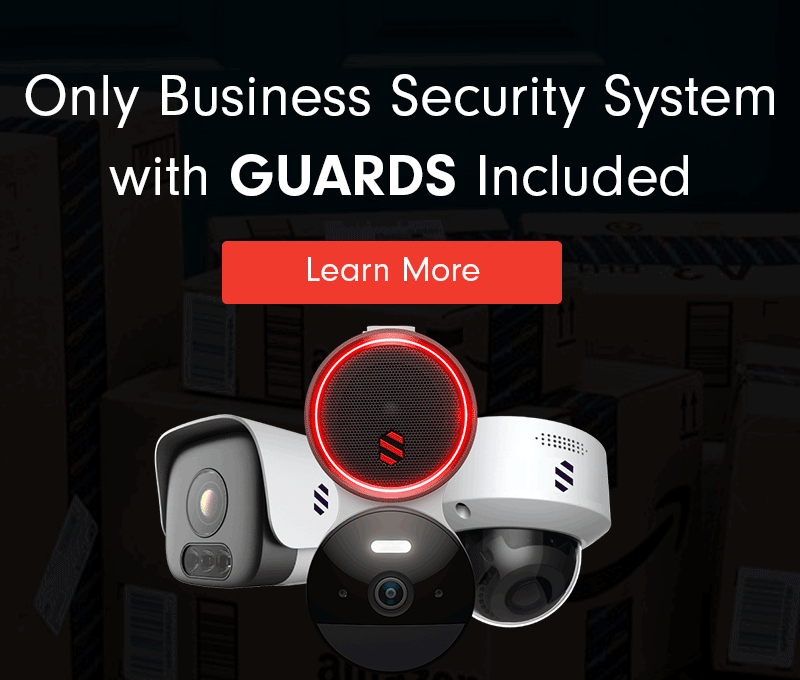Educating Tenants About Apartment Building Safety

You’re only as strong as your weakest link. As a property owner or building manager, ensuring the safety of your tenants should be a top priority. But there’s only so much you can do alone. Educating tenants about best practices, tips, and tricks for apartment building security is an essential step in creating a secure living environment. Not only does tenant education help mitigate risks and minimize potential incidents, but it also fosters a sense of community and cooperation among residents.
And that makes everyone an active part of the solution. When we see our neighbors as members of the same community, we want to protect them. It turns a multi-family residential property from just a building to a shared home.
The importance of educating tenants and implementing security measures can’t be overstated. By taking proactive steps to educate and empower your tenants, you can create a more secure apartment building for everyone.
So let’s get started.
Understanding Apartment Building Security
Residential property crime can happen anytime and anywhere. In fact, you’re 5.5x more likely to be the victim of a property crime—theft, burglary, arson, vandalism, motor vehicle theft, etc.—than a violent one.
Would-be burglars don’t care whether it’s a standalone house, multi-story apartment building, condo, or duplex. If they see an opportunity, they will take it.
The most common multifamily residential security concerns are the same as those at a single-family house. These include weak or broken locks, open windows, poor lighting, bad sightlines, valuables in plain sight, poor maintenance, access control, and so on. The major difference? As the owner or manager, you’re dealing with many individuals rather than one family. And that means there’s a greater risk of a security breach via simple human error.
That’s why educating tenants and making building security everyone’s responsibility is so important. It’s far too easy for residents to think of themselves as isolated individuals rather than members of the group. They may take steps to secure their unit but become quite careless about the building as a whole. It’s up to you to change that trend.
Keep in mind, too, that there is no single solution or magic bullet that addresses and mitigates every risk. Building security is a multi-layered proposition. One security measure is better than none, but two is better than one, and so forth. Robust multi-family residential security solutions will include access control, cameras, lights, motion detectors, sirens, and ideally, monitoring.
But the best security in the world won’t do a thing if you have tenants frequently buzzing in strangers or leaving doors unlocked. You need to educate them.
Best Practices for Tenant Security
Tenants may have a general grasp of individual security measures but lack the same knowledge of how to protect the community. That’s where you come in.
When thinking about educating tenants and what to teach them, it helps to break it down into smaller chunks rather than throwing it all at them at once.
Securing Individual Units
Your tenants will obviously be most concerned with keeping their own property safe, so it makes sense to start here. There are many things you can do in collaboration with them to upgrade their apartment security. Some basics:
- Changing or rekeying the locks after a tenant vacates the unit
- Installing quality locks, deadbolts, and peepholes on unit doors
- Providing information on reinforcing doors from the inside for an extra layer of security and helping tenants make these changes
- Ensuring all windows and sliding doors within the unit have a strong and functioning lock
- Reminding them of the importance of keeping windows and doors locked at all times, especially when out or at night
- Informing tenants in ground-floor apartments of any risks particular to them and their location in the building
- Providing each unit with smoke and carbon monoxide detectors (as required by law)
- Recommending tenant-purchased door and window sensors— and possibly security cameras—within their own unit
Once your tenants are up-to-speed on unit security, you can turn your and their attention to securing the building itself.
Securing Common Areas
A multi-family residential property has multiple common areas, including:
- Lobby
- Lounge
- Party room
- Package or mail room
- Storage lockers
- Parking lot or garage
- Gym
- Pool
Keeping these areas safe is ultimately your responsibility, but tenants can help or hurt. Set the stage by limiting access—via keys or keycards—and installing apartment complex security cameras and adequate lighting. With a higher risk of getting caught, people are reluctant to try anything.
Beyond that, each tenant should report suspicious activity to management. Develop an easy channel for them to do so, such as a phone number, incident report, dropbox, email address, or office hours. You don’t want them to “take the law into their own hands,” but if they notice someone lingering around, they can bring it to your attention. In addition, ask tenants to report maintenance issues promptly. Repairing security equipment keeps the premises safe.
Coach them on the proper way to use access control measures. After all, locks don’t work well on an open door. Even those on higher floors should know that thieves can climb to an open window or deck door. Furthermore, residents should not share keys—which can be copied—or access codes with anyone. Consider changing codes monthly or quarterly.
If your building has an intercom system, remind tenants that they should never grant access to an unknown person. The same goes for tailgating—also known as piggybacking—when a stranger follows closely behind a tenant through a controlled door or gate. Holding the door seems polite, but in a multi-family building, this is a major security risk.
Finally, encourage community-building activities like a BBQ, game night, softball tournament, or something similar. When everyone knows everyone else, the community begins to protect itself. And strangers are easy to identify.
Personal Safety Tips
Go the extra mile and provide additional tips for tenants to keep themselves safe. You could even invite a local security expert—from a private company or local police precinct—for a presentation or Q&A. Tips might include:
- Being aware of your surroundings at all times
- Staying in well-lit and populated areas at night, especially if by yourself
- How to properly secure packages and deliveries
- How to safely share sensitive information
- What to do if you experience a break-in
Foster a sense of care and community, and watch how much that community will eventually care.
Teaching Strategies for Educating Tenants About Security
There are a number of ways to educate your tenants.
You might go the traditional route: a community bulletin board, a resident newsletter, posters, a move-in packet, or notes slipped into mailboxes or under doors. You could opt for digital channels like email, social media, a mobile app, or instant messaging. Or you might decide on in-person meetings, workshops, or discussions.
Your best bet? A combination of all three so no one falls through the cracks. Older tenants might not be comfortable with digital communication, while younger ones may have no interest in attending meetings. Get the information to them in whatever way they prefer.
Depending on need and interest, consider creating a tenant security committee. This group can take the lead on addressing tenant concerns, running awareness campaigns, and offering relevant training sessions. With help from management and local authorities, the group can create a tenant security handbook. Knowing how to deal with a security incident before it happens saves valuable time.
A social media group or messaging thread is an excellent modern method for quickly disseminating information. You can use these for incident reports, shared concerns, and collectively answering questions. If you don’t have the time to administer one yourself, ask for a tenant volunteer.
Perhaps the biggest obstacle you’ll face is tenant apathy. Try these strategies.
- Share real-life examples and case studies to humanize security and make it relevant to them
- Emphasize the personal impact (financial, emotional, mental) of both security measures and breaches
- If necessary, consider incentivizing participation
Educating tenants is crucial for apartment building security. By implementing best practices, sharing useful tips, and fostering open communication, building managers can empower their tenants to maintain a safe living environment. Security is a collective effort between tenants, property management, and security teams.
Prioritize Tenant Safety with Deep Sentinel
Deep Sentinel is proud to work with property managers and owners to offer multi-family residential security solutions that provide a safe home for all residents. Advanced AI, security cameras, and live guards protect your tenants like nothing else can. Trust the power of live security camera monitoring at your apartment or security complex.
Call 833.983.6006 for your free consultation.
Need a Solution that Prevents Crime? Deep Sentinel is the only security technology that delivers the experience of a personal guard on every customer’s home and business. Visit deepsentinel.com/business or call 833-983-6006

